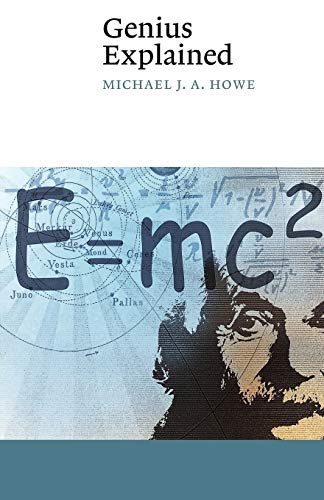Synopsis
The cherished view of genius is that it is a special inborn gift: something mysterious, even miraculous. In Genius Explained, psychologist Michael Howe traces the lives of some exceptionally creative men and women, including Charles Darwin, the Brontė sisters, George Eliot, Michael Faraday, Albert Einstein and the railway inventor George Stephenson. Their biographies reveal how the extraordinary capabilities of these people were clearly rooted in the experiences and opportunities that forged their characters. Eschewing mysticism, Howe's study shows that to be a genius demands a strong sense of direction and an extraordinary degree of commitment, focus, practice, ardous training and drive. Michael J.A. Howe is professor of psychology at the University of Exeter. He is the author of A Teacher's Guide to the Psychology of Learning (Blackwell, 1999) and The Psychology of High Abilities (New York University Press, 1999). Previous paperback edition (1999) 0-521-64968-4
Book Description
In Genius Explained Michael J. A. Howe addresses the commonly held belief that genius is born not made. Controversially, he suggests that genius is not a mysterious and mystical gift, but the product of a combination of environment, personality and sheer hard work. He develops these ideas through case studies of famous figures such as Charles Darwin, George Eliot, George Stevenson, the Brontė sisters, Michael Faraday and Albert Einstein. This fascinating and accessible book will be of interest to academics and students of intelligence and the interested lay reader.
"About this title" may belong to another edition of this title.
